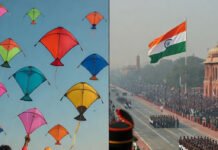As the auspicious occasion of Mahashivratri approaches on 8th March 2024, devotees of Lord Shiva eagerly prepare to observe this sacred day with reverence and devotion. Mahashivratri holds immense significance in Hindu culture, commemorating the divine union of Lord Shiva and Goddess Parvati. Central to the rituals of Mahashivratri is the observance of fasting, wherein devotees abstain from certain foods to honor the divine couple and seek their blessings for health, prosperity, and spiritual fulfillment.
Understanding Mahashivratri Fasting
Devotees believe that observing a fast on Mahashivratri brings manifold benefits, including the fulfillment of wishes and the attainment of spiritual merit. According to Vedic tradition, fasting during this auspicious day signifies purification of the soul and a deepening of one’s connection with the divine.
The Significance of Abstaining from Grains
One of the key aspects of Mahashivratri fasting is the avoidance of grains. This practice is deeply rooted in religious beliefs and symbolizes renunciation and detachment from worldly desires. Consuming grains is believed to disturb the purity of the fast and may incur the wrath of Lord Shiva.
What to Eat on Mahashivratri
While grains are off the menu, there are several delicious and nutritious options available for devotees observing the fast. Here are some satvik foods that are recommended for consumption on Mahashivratri:
1. Fruits
Fruits are a staple of Mahashivratri fasting. Devotees can indulge in a variety of fruits, including bananas, apples, oranges, and mangoes. Fruits are not only refreshing but also provide essential vitamins and minerals to sustain energy levels throughout the day.
2. Water Chestnut Flour Delicacies
Water chestnut flour, commonly known as Singhara atta, is a popular choice for preparing delicacies during Mahashivratri. Dishes such as halwa, puri, and salty snacks made from Singhara atta are not only delicious but also considered highly auspicious for the occasion.
3. Sweet Potato
Sweet potatoes, also known as shakarkandi, hold special significance on Mahashivratri. Consuming sweet potatoes is believed to invoke blessings of prosperity and abundance from Lord Shiva. They can be enjoyed roasted, boiled, or as part of savory dishes.
4. Dairy Products
Dairy products such as milk, yogurt, and cottage cheese are permissible during Mahashivratri fasting. These dairy items are rich in protein and calcium, providing essential nutrients to maintain strength and vitality throughout the day.
5. Sago, Potato, and Buckwheat Flour
Dishes made from sago, potato, and buckwheat flour mixed with rock salt are excellent options for a satisfying and nutritious meal during Mahashivratri fasting. These ingredients are easy to digest and provide sustained energy without compromising the sanctity of the fast.
Foods to Avoid on Mahashivratri
While there are several options available for a fulfilling fast, there are certain foods that devotees should strictly avoid consuming on Mahashivratri:
1. Wheat, Rice, and Pulses
Grains such as wheat, rice, and pulses are strictly prohibited during Mahashivratri fasting. Consuming these grains is believed to disrupt the purity of the fast and may displease Lord Shiva.
2. Tamasic Foods
Tamasic foods, including garlic, onion, and meat, should be avoided during Mahashivratri fasting. These foods are considered to possess negative energies and are not conducive to spiritual practices.
3. Alcohol
Alcohol in any form should be abstained from during Mahashivratri fasting. Alcohol consumption is incompatible with the sanctity of the occasion and may hinder spiritual progress.
4. Negative Speech and Behavior
In addition to dietary restrictions, devotees are advised to refrain from negative speech and behavior on Mahashivratri. It is essential to maintain a peaceful and harmonious demeanor, treating others with kindness and respect.
Mahashivratri fasting is a sacred tradition that holds deep spiritual significance for devotees of Lord Shiva. By adhering to the prescribed dietary guidelines and observing the fast with sincerity and devotion, devotees can invoke the blessings of Lord Shiva and Mother Parvati for health, happiness, and spiritual fulfillment.
















